Sustainability is the carrying out of economic activity without depleting resources or having harmful impacts now or for future generations. Sustainability in building developments must be considered from the very earliest stages, as the potential environmental impacts are considerable. Once the decision to erect a new building has been reached, a significant commitment to consume resources has already been made. Clients may appoint an independent adviser with specialist knowledge of sustainability during the planning stage of their project to help them address and decide the sustainability issues.
Designing Buildings Wiki. "Sustainability in Building Design and Construction". (x1619827200)May 01, 2021. https://www.designingbuildings.co.uk/...
Posted on 24/03/21
Recent Abstracts
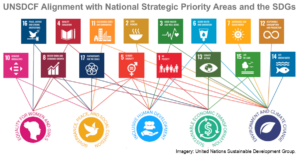
The United Nations Sustainable Development Cooperation Framework (UNSDCF)
The United Nations Sustainable Development Cooperation Framework (UNSDCF) is the most important instrument for planning and implementation of the UN development activities at country level. The Cooperation Framework is an agreement between the UN and the host government that must a) clearly articulate the United Natio ...
Posted on 10/03/25
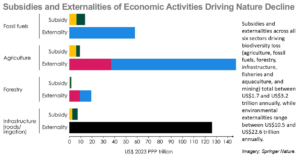
The Costs of Subsidies and Externalities of Economic Activities Driving Nature Decline
A better understanding of the complexity, size, design, and effects of subsidies and externalities of economic sectors contributing to environmental degradation could facilitate and expedite discussions to strengthen the implementation of multilateral agreements. This is an essential aspect of the global economic syst ...
Posted on 10/03/25

Global Trade is Fracturing: Here’s Why the EU Needs the Green Deal More Than Ever
President Trump is weaponizing trade. After decades of globalization and expanding trade, recent shocks have exposed the fragility of global value chains (GVCs). As rising geopolitical tensions fuel protectionist sentiments and trade wars, the urgent need for sustainable and environmentally friendly supply chains fo ...
Posted on 21/02/25
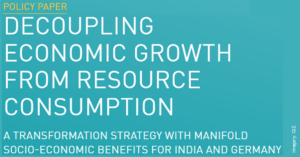
A Transformation Strategy with Manifold Socio Economic Benefits for India and Germany
Current patterns of production and consumption, in particular in the global North, cannot be transferred to the rising world population, in particular in the global South, without severe environmental and societal consequences and economic risks. The “Green Economy” is intended to “contribute to eradicating poverty as ...
Posted on 17/02/25
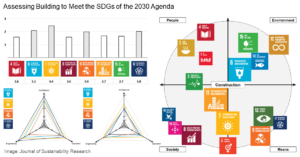
On the Role of Construction in Achieving the SDGs
Construction and real estate have been central to the debates on sustainable development. Where the dominant definition of sustainability in the built environment focuses on the environmental dimension, the UN Sustainable Development Goals (SDGs) offer opportunities for the building sector to expand its focus. Green ...
Posted on 05/02/25

Gas, Guns, and Governments: Financial Costs of Anti-ESG Policies
Restricting ESG strategies distorts financial market outcomes. As investor interest in funds with environmental, social and governance (ESG) principles has increased, legislation restricting public sector activity with funds that pursue ESG-friendly principles has been proposed or passed in 17 states. As a result, th ...
Posted on 03/02/25

Allianz Risk Barometer – Identifying the Major Business Risks for 2025
Over the last two decades, the global re/insurance sector has experienced an increasing number of major natural catastrophes, such as winter storms, forest fires, severe heat waves and heavy flooding. Countries around the world are suffering the effects of climate change, which contribute to more frequent and extreme ...
Posted on 31/01/25

Correlates of Climate Change Skepticism
Climate change is a highly contentious topic that has led to such labels such as “alarmists” and “deniers”. While the former urge immediate and drastic action to stop global climate change, the latter deny many of the key claims made by scientists about climate change. Among other, less extreme groups, are the “skept ...
Posted on 29/01/25
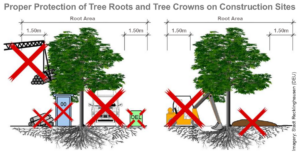
Vienna Tree Protection Act in Austria
The Vienna Tree Protection Act is considered one of the factors that makes Vienna the “most liveable city” in the world. While Vienna has a highly effective and strictly enforced tree protection ordinance, the rest of Austria vehemently resists such strict nature conservation measures. Regulations to protect trees an ...
Posted on 28/01/25
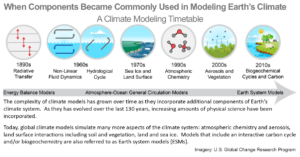
Combining Climate Models and Observations to Predict the Time Remaining Until Regional Warming Thresholds are Reached
The global climate is constantly changing and global warming is progressing faster than the best models can cope with. Assessing the future impact of influencing factors requires hundreds of years of simulations as we move further and further away from the reference points (see “Climate models can't explain what's hap ...
Posted on 27/01/25
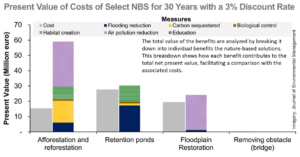
Economic Assessment of Nature-Based Solutions to Reduce Flood Risk and Enhance Co-Benefits
Flooding is increasing due to climate change, urbanization and land-use changes. Nature-based solutions (NBS) are commonly used as innovative and sustainable methods of flood risk management. In addition to reducing flood risk, NBS also offer economic and ecological benefits for society and the environment. However, ...
Posted on 27/01/25
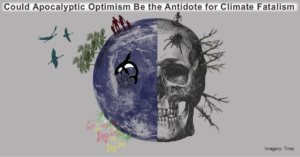
Apocalyptic Optimism Could Be the Antidote for Climate Fatalism
Mass mobilization driven by the pain and suffering of global climate shocks is expected to be the only way humanity can save itself from the climate crisis we have created. As the social impacts of climate shocks increase in both frequency and severity, they will trigger an “AnthroShift” in which personal and economic ...
Posted on 25/01/25
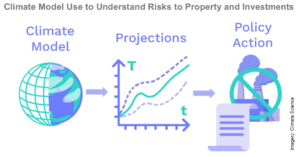
Climate Models Can’t Explain What’s Happening to Earth
Global climate is constantly changing and global warming is moving faster than the best models can handle. Assessing the future impact of influencing factors requires hundreds of years of simulations while we are moving further and further away from our reference points. “We are asking a lot of the models” because m ...
Posted on 24/01/25
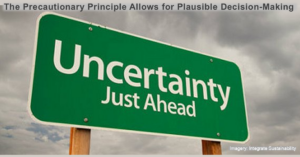
Climate Uncertainty, Real Possibilities and the Precautionary Principle
While skepticism is crucial to scientific inquiry and research, the precautionary principle is ambiguous about the distinction between risk and uncertainty. One challenge for proponents of the precautionary principle is to clarify when evidence that a harmful event could occur is sufficient to consider it a real possi ...
Posted on 22/01/25
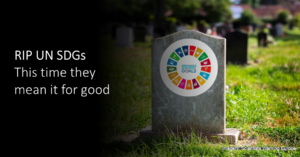
What Trump’s Exit from the Climate Deal Really Means
This time, Trump's rejection of global climate efforts could mean a more profound blow as it comes into effect sooner and at a time when the new president has more far-right allies overseas and at home. Promptly after taking office on January 20, President Donald Trump issued an executive order that the US will on ...
Posted on 21/01/25

